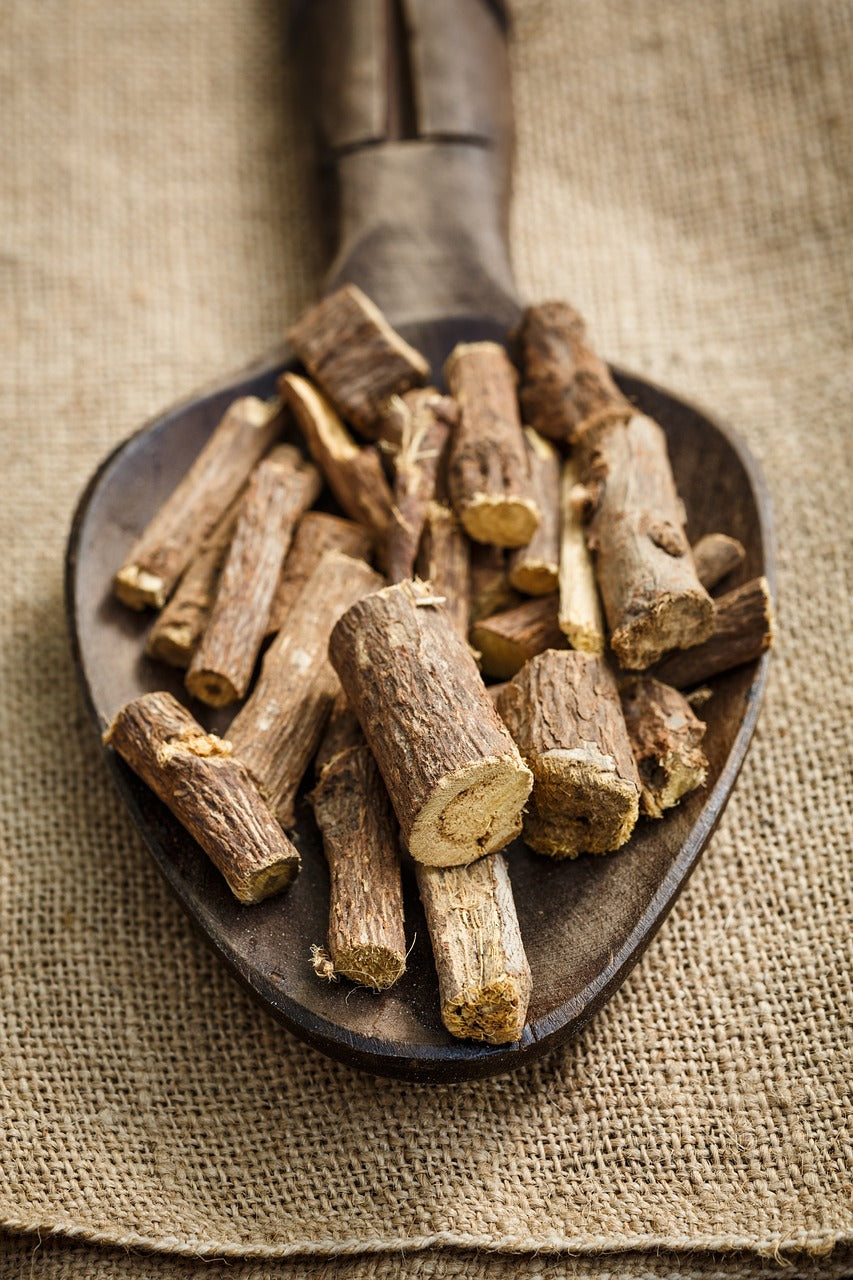
Licorice
Herbal Action: Demulcent, expectorant, emollient, stomachic, anti-inflammatory, mildly laxative and flavouring.
Medical Research/Uses:
Many preparations of Licorice to produce relief in ulcer patients are well documented. Traditionally, the best one is a methanol extract. The anti-inflammatory properties have been attributed to glycyrrhizin.
Licorice has been shown to be estrogenic (with possible other steroidal activities), to have mineralocorticoid properties (causing sodium retention and potassium loss), and to inhibit tumors (due to glycyrrhizinic acid salts). It is anti-inflammatory, antitrichomonas, antitussive (comparable to codeine), anticonvulsive and antibacterial. It is useful in Addison's disease because licorice contributes to mineral balancing of the mineralocorticoids. Glycyrrhizin is responsible for the anti-inflammatory effect, and it has some impact on the corticoid mechanism.
Additional Information
Part Used: Root
